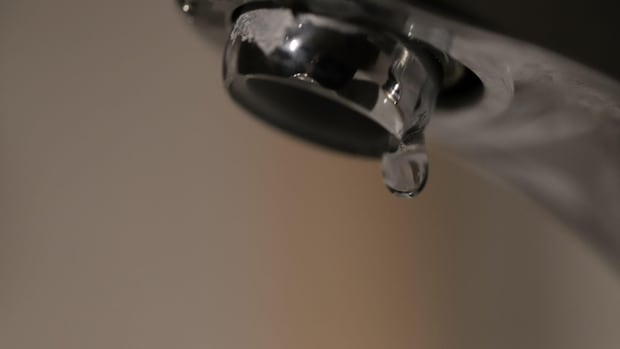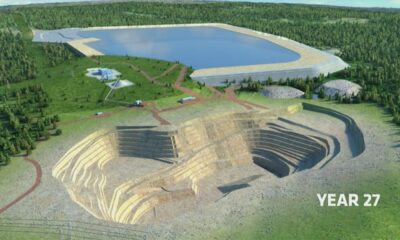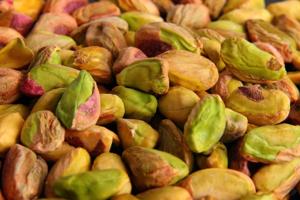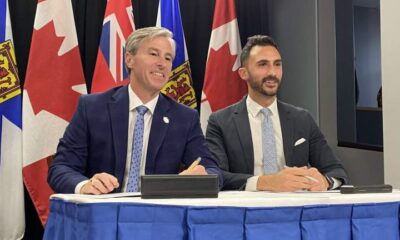Top Stories
New Brunswick Urges Urgent Water Conservation as Drought Persists

UPDATE: New Brunswick officials are sounding the alarm on severe drought conditions, urging residents to conserve water this winter. With a slim chance of rain before the New Year, Environment Minister Gilles LePage emphasized, “Until significant precipitation returns, every drop saved counts.”
As of September 2023, the province recorded only 44 percent of its typical rainfall, according to the New Brunswick Water Resource Report. The situation is dire, as the eastern half of the province is classified under “extreme drought” by the Canadian Drought Monitor. Some regions, including parts of Fundy-Albert, have reached the most severe level, termed “exceptional drought.”
The colder months pose additional challenges for water replenishment. Roger Roy, executive director of the New Brunswick Water Association, warned, “The ground will freeze up, and there’s no water going into the ground.” This could lead to wells running dry as early as next summer.
Residents are encouraged to continue water-saving measures adopted during the summer drought, such as taking shorter showers, waiting for full loads before using laundry machines, and installing low-flow faucets. These habits could make a crucial difference as the province experiences currently below-normal precipitation levels.
Recent rainfall has not been sufficient to alleviate the drought. Miramichi has seen record-low groundwater levels, with officials closely monitoring the situation as the city relies on 19 municipal wells to supply an average of 20 million gallons of water daily. City Director of Public Works Jay Shanahan said, “It’s definitely going to have an impact for sure,” as some residents struggle with wells that have run dry.
In response to the ongoing crisis, those outside the city may face the daunting prospect of re-digging wells deeper, with costs reaching up to $10,000 for homeowners. “Most of the ones I’ve talked to are within that 100 feet or less parameter,” Shanahan explained.
In contrast, municipal wells in Miramichi are typically around 400 feet deep, making them more resilient but costly to maintain. Residents are advised to watch for signs of drying wells, such as dirty water and low pressure.
On Grand Manan Island, the situation has also been concerning, with dozens of wells drying up over the summer. Mayor Bonnie Morse noted that while recent rains have brought some relief, the community still hopes for more precipitation to ease ongoing worries.
The province’s water conservation message is clear: “Conserving water is not something we should think of only in a drought,” Roy stated. “In New Brunswick, we have lots of groundwater, and we take water for granted.”
As Environment Canada predicts above-average temperatures and below-normal precipitation through December, New Brunswickers are urged to act now. Every water-saving measure counts as the region navigates these challenging conditions.
Residents are encouraged to stay vigilant and proactive as the winter approaches, with officials reiterating that the future of local water resources depends on collective efforts to conserve. Share this urgent message with others to promote awareness and action for a sustainable future.
-

 World4 months ago
World4 months agoScientists Unearth Ancient Antarctic Ice to Unlock Climate Secrets
-

 Entertainment4 months ago
Entertainment4 months agoTrump and McCormick to Announce $70 Billion Energy Investments
-

 Lifestyle4 months ago
Lifestyle4 months agoTransLink Launches Food Truck Program to Boost Revenue in Vancouver
-

 Science4 months ago
Science4 months agoFour Astronauts Return to Earth After International Space Station Mission
-

 Technology2 months ago
Technology2 months agoApple Notes Enhances Functionality with Markdown Support in macOS 26
-

 Top Stories4 weeks ago
Top Stories4 weeks agoUrgent Update: Fatal Crash on Highway 99 Claims Life of Pitt Meadows Man
-

 Sports4 months ago
Sports4 months agoSearch Underway for Missing Hunter Amid Hokkaido Bear Emergency
-

 Politics3 months ago
Politics3 months agoUkrainian Tennis Star Elina Svitolina Faces Death Threats Online
-

 Politics4 months ago
Politics4 months agoCarney Engages First Nations Leaders at Development Law Summit
-

 Technology4 months ago
Technology4 months agoFrosthaven Launches Early Access on July 31, 2025
-

 Top Stories2 weeks ago
Top Stories2 weeks agoFamily Remembers Beverley Rowbotham 25 Years After Murder
-

 Top Stories1 week ago
Top Stories1 week agoBlake Snell’s Frustration Ignites Toronto Blue Jays Fan Fury





















